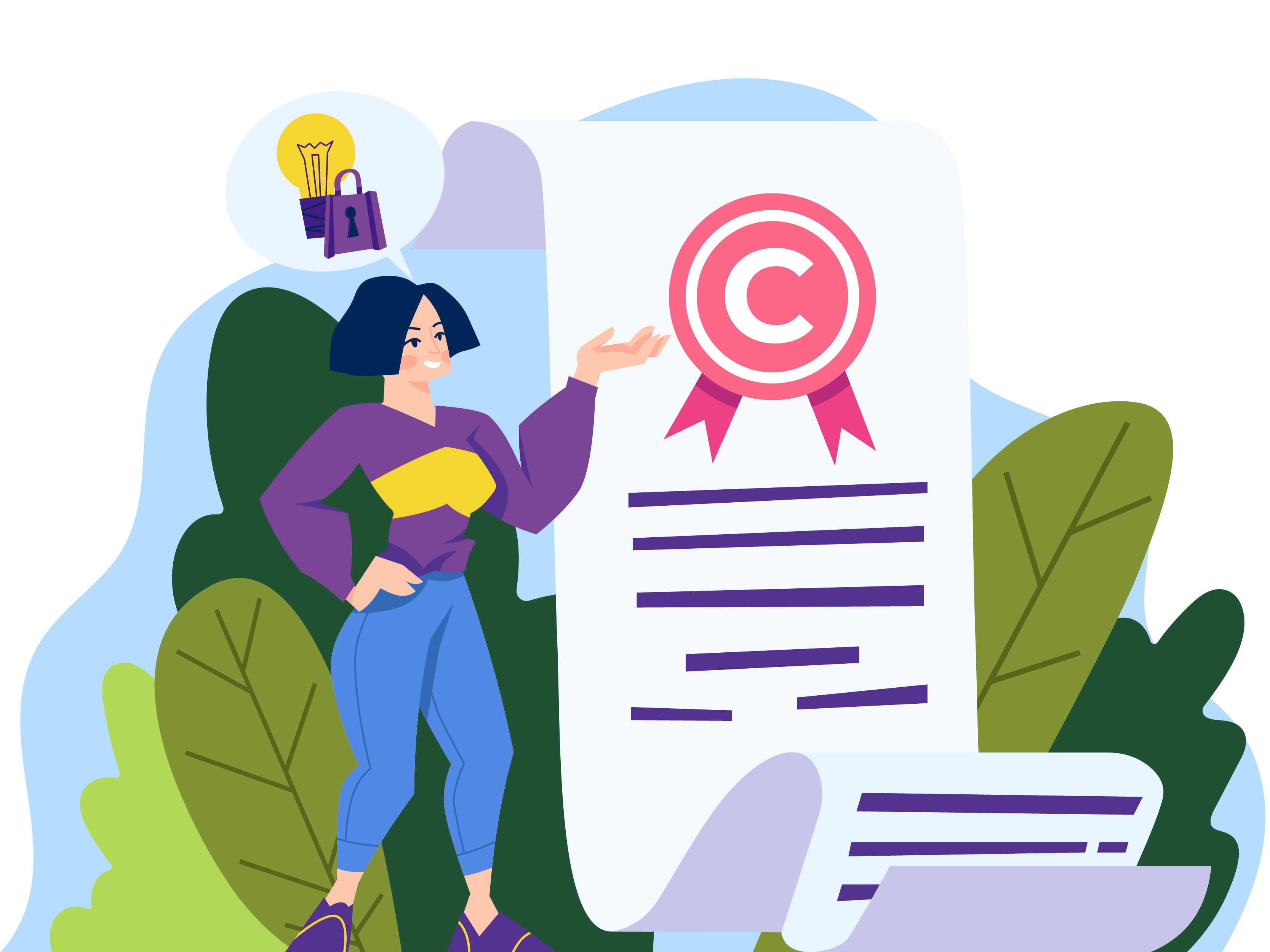 Last updated: January 13th, 2022 4:13 PM
Last updated: January 13th, 2022 4:13 PM
Software Copyright Responsibilities
Software Copyright is a form of protection for copyrights that are provided for coders who make the software programs. Nowadays, software copyright is given as much significance as having literary copyright. In simple terms, it refers to copyright concerning machine-readable software. It started as an extension of copyright laws to provide architecture-like protection to programmers' source code and software. Softwares can be owned by individuals, a group of individuals, or a company itself. Still being a developing field of study, apart from a few select categories of software that make software ownership rights are fairly uncomplicated and hassle-free. Software copyright is the most common method for protecting software. A programmer owns the copyright of any program written by them and it is valid for 70 years after the death of the author.Background
Copyright does not protect facts, ideas, systems, or methods of operation but protects the ways these ideas are executed. The ideas can be outlined in writing or drawings but copyright cannot protect the idea itself. The computer programs were not protected by the copyright because until 1974 the computer programs were not considered to be fixed tangible objects. It was in 1983 the copyright law was extended for including machine-readable software and the copyright Act awarded computer programs. Many of the same legal principles and policies are applicable several distinct issues arise with software copyright.How does Software Copyright work?
Copyright is used by software developers and companies to prevent fraudulent copying and sharing of software owned by them. Legal actions can be appealed to penalize copyright infringement by copyright holders. Modification of licensed software is possible with prior authorization, paying the royalties to the owner of the software if required.What are software copyright roles and responsibilities?
Copyright is the safest and most secure method to safeguard original work and ideas from unethical access. It serves as a legal ground for the possessor of the software to prepare a defense against defaulters. However, copyrights are different from patent applications as they do not protect the idea. To avoid infringement, each software code comes with a license. Furthermore, a redundant code is always added along with the original copy lest someone does not copy the direct code. Programs and software should be copyrighted as soon as possible after the creation of the product to protect one's product from duplicacy and infringement.Infringement for Copyright and Legal remedies for the same
There are civil remedies to copyright infringement which are provided in Chapter 12 of the Copyright Act 1957. A person using the infringed copies can be punished with imprisonment extendable up to three years and a fine of 2 lakh. Section 62 of the Copyright Act, 1957 entitles a plaintiff to file a suit for injuncting against the infringement within the District Court of Jurisdiction. Lately, Indian courts have accepted petitions against unknown defendants or people that can be identified through their IP addresses. Indian courts had adopted the popularly known as John Doe order in the US courts a principle of accepting the petitions against the unknowing person in cases of defamation or IP infringements which also includes the cases related to software piracy.Popular Post

In the digital age, the convenience of accessing important documents online has become a necessity...

The Atalji Janasnehi Kendra Project that has been launched by the Government of Karnataka...

The Indian Divorce Act governs divorce among the Christian couples in India. Divorce...

When an individual has more than a single PAN card, it may lead to that person being heavily penalised, or worse,...

Employees Provident Fund (PF) is social security and savings scheme for employee in India. Employers engaged...


